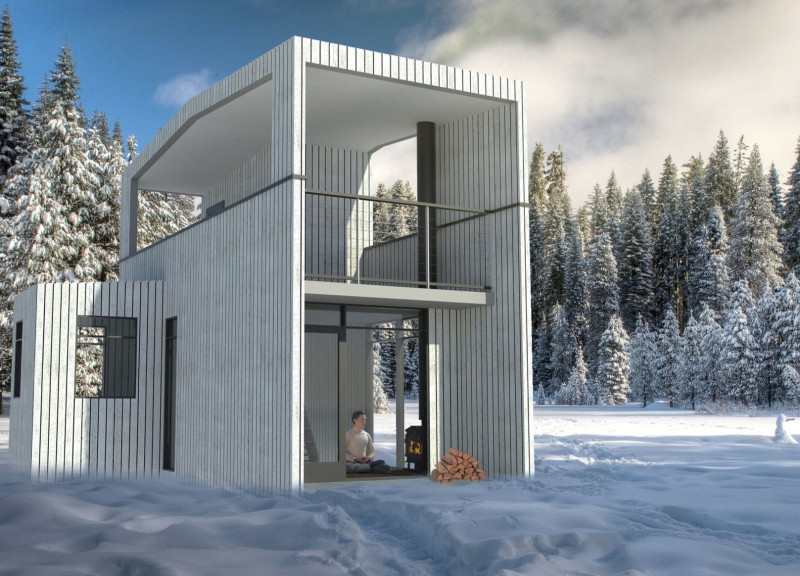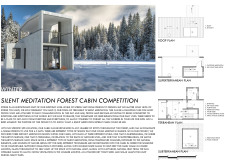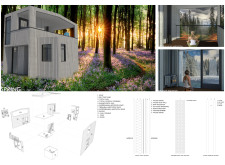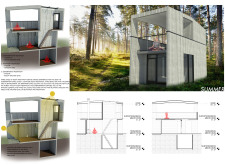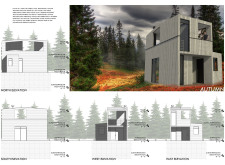5 key facts about this project
The Silent Meditation Forest Cabin serves as a calming space for meditation and reflection. Located in the peaceful forests of Latvia, the cabin offers an escape from the stress of daily life. Designed with a strong connection to nature, the cabin features a three-tiered layout that encourages users to engage with their surroundings while practicing silence and mindfulness.
MEDITATION SPACES
Three unique meditation spaces exist within the cabin: subterranean, terranean, and superterranean. The subterranean space is found below ground level. This area is quiet and private, allowing for a deep focus on self-reflection. The terranean space sits at ground level. It invites users to experience the natural landscape, providing views of the surrounding forest. The superterranean space rises above the ground, bringing users closer to the elements. Here, the sounds of the wind and the rustling leaves create an atmosphere that enhances the meditative process.
MATERIALITY AND SUSTAINABILITY
Wood is the main material used in the cabin's construction, drawing from traditional Latvian building practices. This choice supports a connection to the natural environment while being sustainable. Large sections of double-paned glass allow natural light to enter and help maintain a comfortable temperature inside. The design prioritizes energy efficiency, making it suitable for year-round use.
FUNCTIONAL AMENITIES
The cabin includes necessary off-grid amenities to support its users. A dry toilet shed and solar lamps for nighttime illumination make it practical for those seeking solitude in nature. These features reduce the environmental impact while ensuring that the space remains comfortable and functional during extended stays.
The exterior of the cabin showcases rustic wood that blends with the green of the forest. Expansive glass panels provide views into the interior, where simplicity and calm dominate the design. The space encourages users to immerse themselves fully in their meditation experiences, reinforcing the goal of peaceful reflection.


